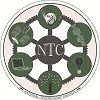
Registration means that registered graduate Engineering Technologist has permeated through accredited academic program of HEI. He possesses professional knowledge, specific attributes, observe professional Ethics that are portable and can provide feedback on knowledge transfer that occurs within the academic program and enable transition of graduate engineering technologists from school to workplace.
The applicants will apply online through NTC Website www.ntc-hec.org.pk and follow registration instructions. After completing online registration process, print out of the application along with all relevant documents and bank challan receipt, after payment in the bank, must be sent to registrar NTC through reputable courier service on following address:
Registrar, National Technology Council (NTC),
Secretariat room 14-018, HRD Complex, HEC
Sector H-8/1, Islamabad 44000.
N.B: Manual application or by hand application will not be entertained / received.
The Registration against nominal fee will be open to the following categories:-

In order to distinguish between engineering and engineering technology, a technological spectrum is used to illustrate the differences. Generally, in an organization, Engineers would most likely work in the design and development fields while Engineering Technologists, Technicians and Craftsmen would be more inclined to work in manufacturing and production line. The Engineers’ role are more towards the left spectrum while the Engineering Technologists are more towards the right of the spectrum although the main activities of both Engineers and Engineering Technologists are in the center of the spectrum. (Cheshier, 1998).
Additional emerging technology disciplines and degree programs shall be added to this list in due course, with formal recommendation of the Executive Council and approval of Controlling Authority.
Email: mfamin@hec.gov.pk
Address: Secretariat National Technology Council (NTC), HRD Complex, Higher Education Commission of Pakistan, Sector H-8/1, Islamabad